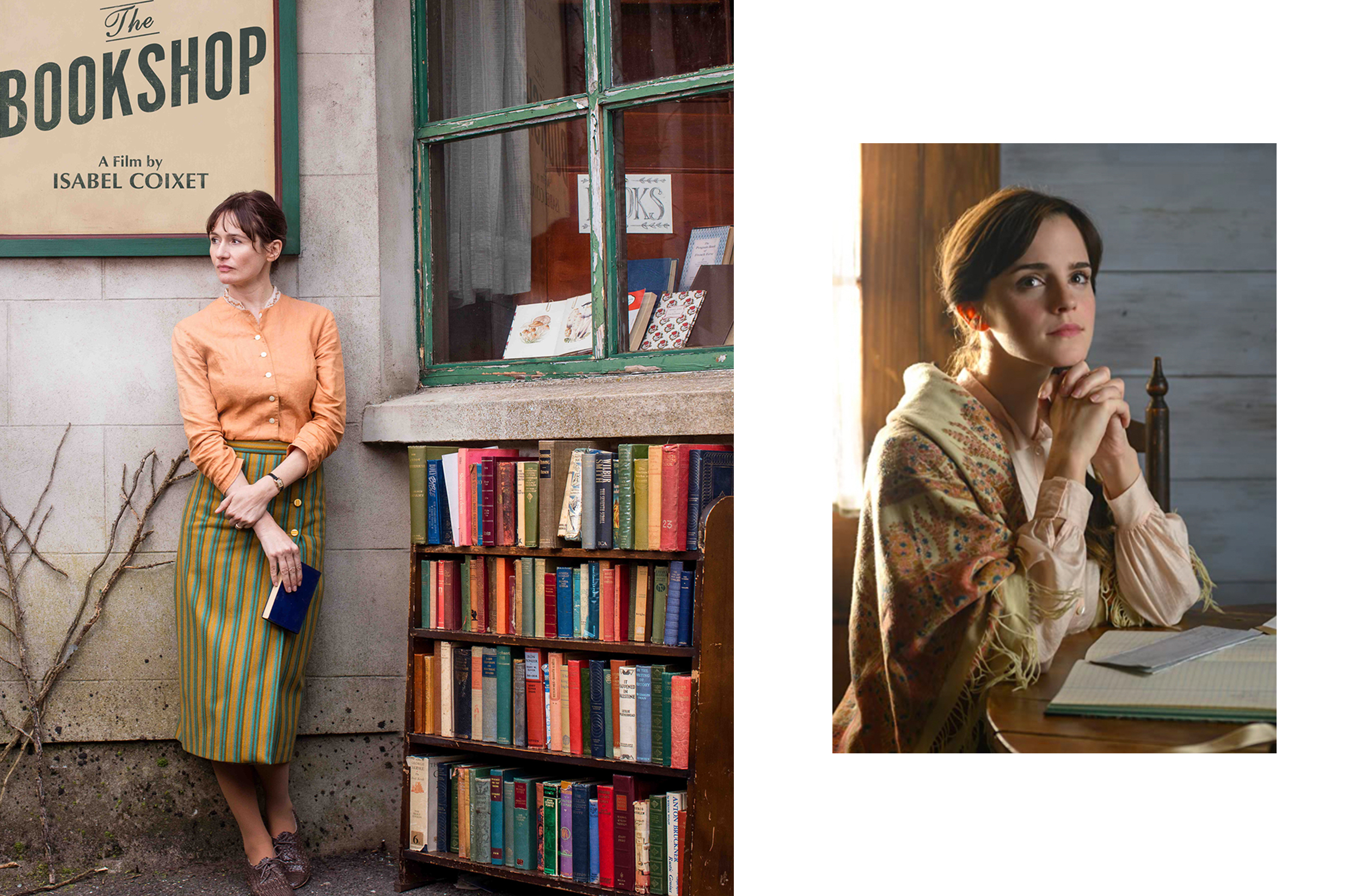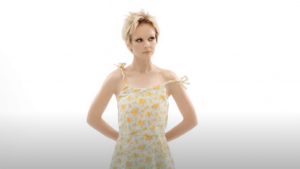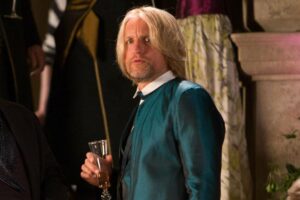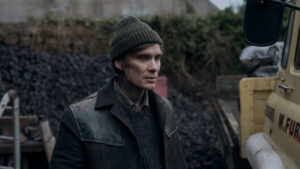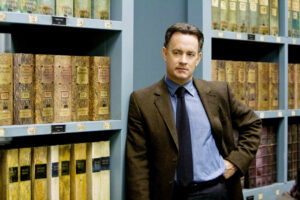Reading enthusiasts like me have seen reader characters on the big or small screen they could really relate to, precisely because they are book lovers: among the most striking examples, there are Rory Gilmore, Hermione Granger, Matilda, and Elio Perlman. As good fans, we are always looking for new titles to add to our TBR list, and helpful suggestions can come from anywhere, including movies and TV series.
It happens that, at certain moments in movies, there are frames that explicitly show books: sometimes they are there for a reason, because they are connected to the plot or story of a character, or they are “simple” props. In any case, they capture the audience’s attention: maybe not at the first viewing, but what we see can prove to be a source of inspiration for what we read or to make us feel even closer to a character. When in doubt, however, we thank movies and TV series for the stories that make us live on the screen, but also for those that lead us to buy a new book. Because yes, we always need it!
Pride and Prejudice by Jane Austen – The Princess Diaries (2001)
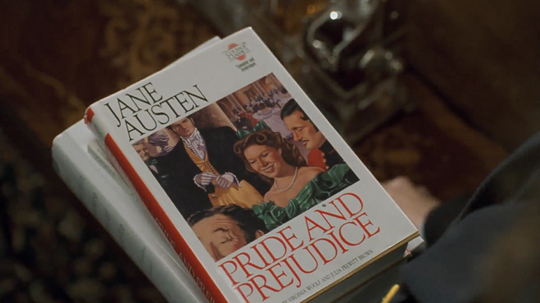
Mia Thermopolis, to become first princess and then queen of Genovia, receives numerous tips to become a good ruler for her people. Her wise grandmother, Queen Clarissa, among other things, advises her to read Jane Austen’s “Pride and Prejudice,” a romantic and timeless story that also reminds us of the importance of asserting one’s opinions through its protagonist, Elizabeth Bennet. Perhaps Mia, on the path to affirming a new, real version of herself, can be compared to Elizabeth: in love with her freedom and aware of what is right.
Frankenstein by Mary Shelley – Wednesday (2022)
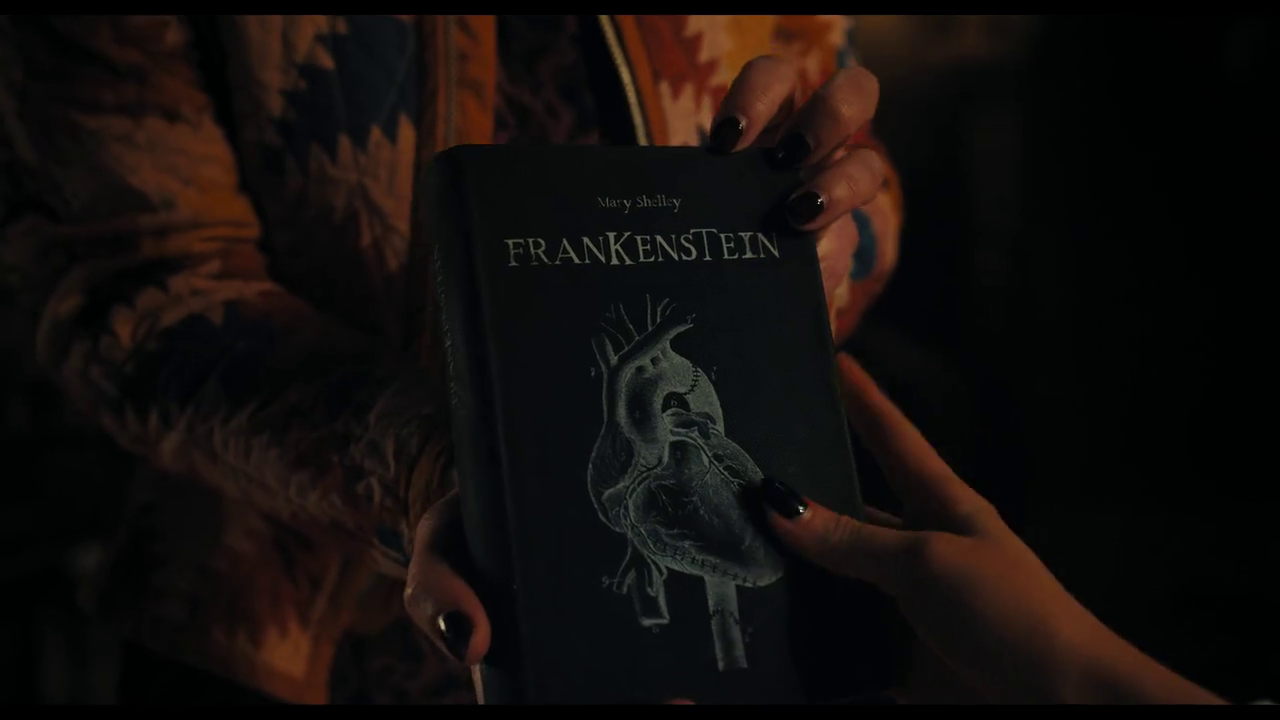
Wednesday Addams sees Mary Shelley as her friend/enemy, a literary heroine but also an adversary to beat in publishing an equally impactful and revolutionary book before the age of 19 (she still has almost three years to go to succeed, and we hope she does). Do you need comments to associate gothic literature with the heroine of Tim Burton’s Netflix series? We don’t think so. We’ll just say that both, in their way, are icons of female power and staying true to themselves regardless of everything and everyone!
Madame Edwarda – Le Mort – Histoire de l’Oeil by Georges Bataille and All I Need Is Love by Klaus Kinski – Before Sunrise (1995)
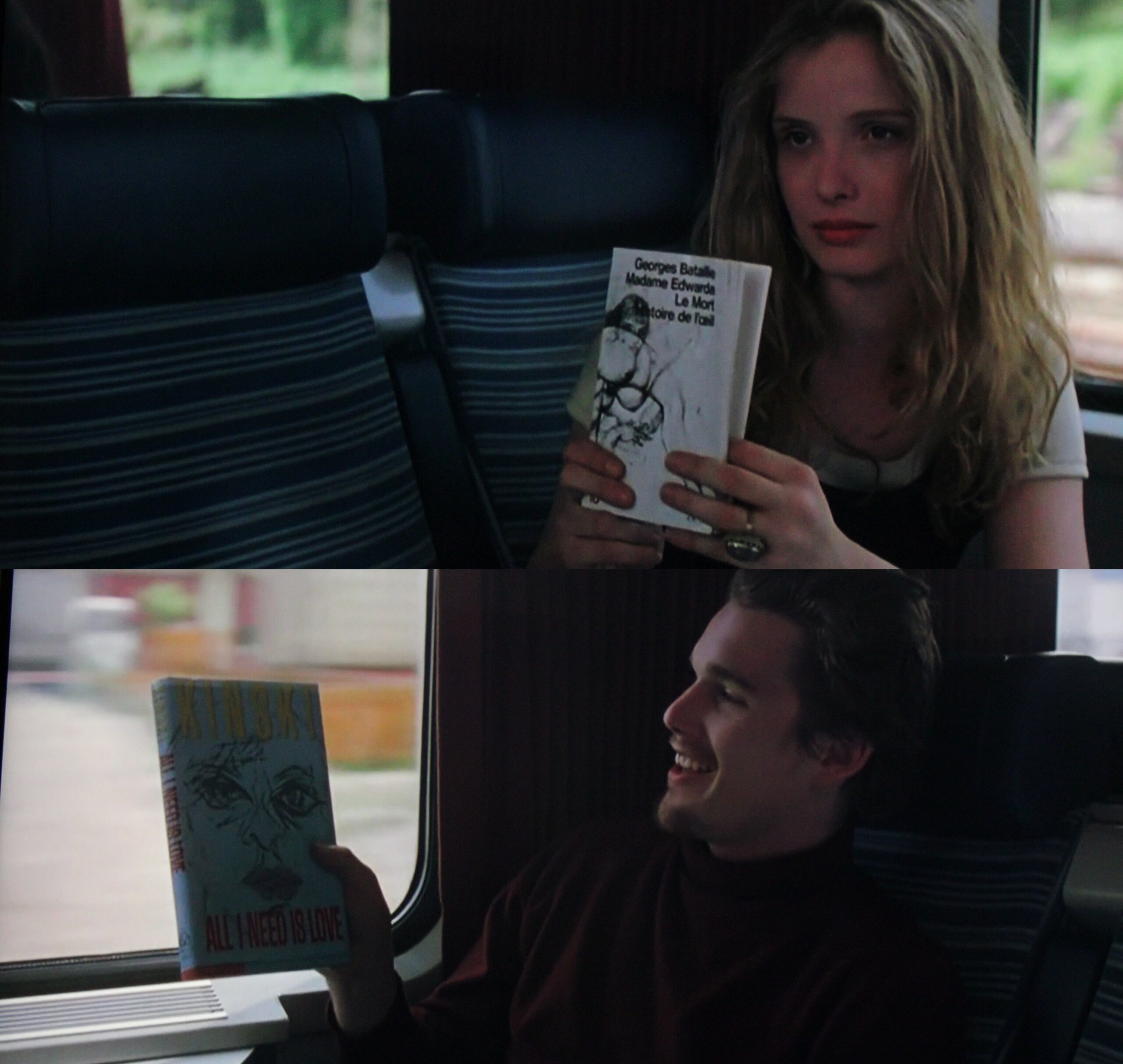
A narrative of love, about love and for love, which sees Jesse and Celine as protagonists, on a night in Paris where, wandering the streets of the city, talking about their life and life in general. The first chapter of an iconic sentimental trilogy: at their first meeting on the train, Jesse and Celine discover the books they are reading to each other. A fictional story and an autobiography, linked by the erotic theme and philosophical nuances, which serve as the first point of contact between the two. And that’s just the beginning.
A Brief History of Time by Stephen Hawking – Harry Potter and the Prisoner of Azkaban (2004)
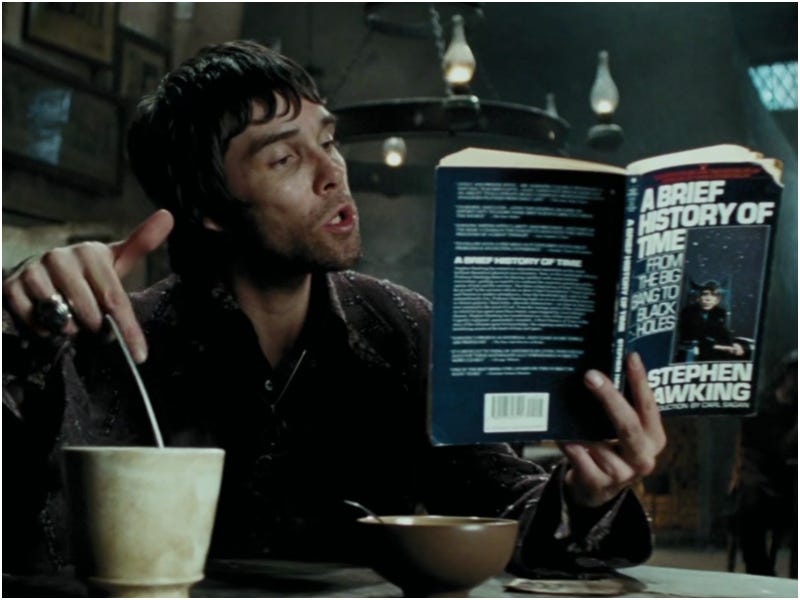
This is one of the details I noticed at the umpteenth rewatch of the Harry Potter saga: right at the beginning, when Harry finds the Weasleys at the Leaky Cauldron, a wizard is framed while reading Stephen Hawking’s book dedicated to the concepts of space and time, but also time travel. A clue, therefore, to what will be one of the most important dynamics of this chapter of the saga; I like to think that even our beloved Hermione read it to prepare for the use of the Time-Turner. Who knows if Hawking was a wizard too…
The Saint in New York by Leslie Charteris – Inglourious Basterds (2009)
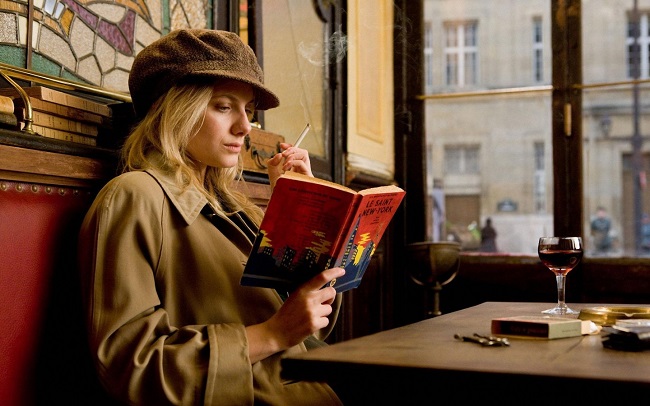
Shoshanna, before meeting Zoller in a café, is reading a violent and raw book about murder, corruption, and criminal injustice. Could it perhaps be otherwise, given the dynamics of Quentin Tarantino’s film? A book with a reassuring cover and title that hides strong feelings: just like Shoshanna, who is secretly meditating on her revenge against the Nazis who took everything away from her.
The Help by Kathryn Stockett – The Help (2011)
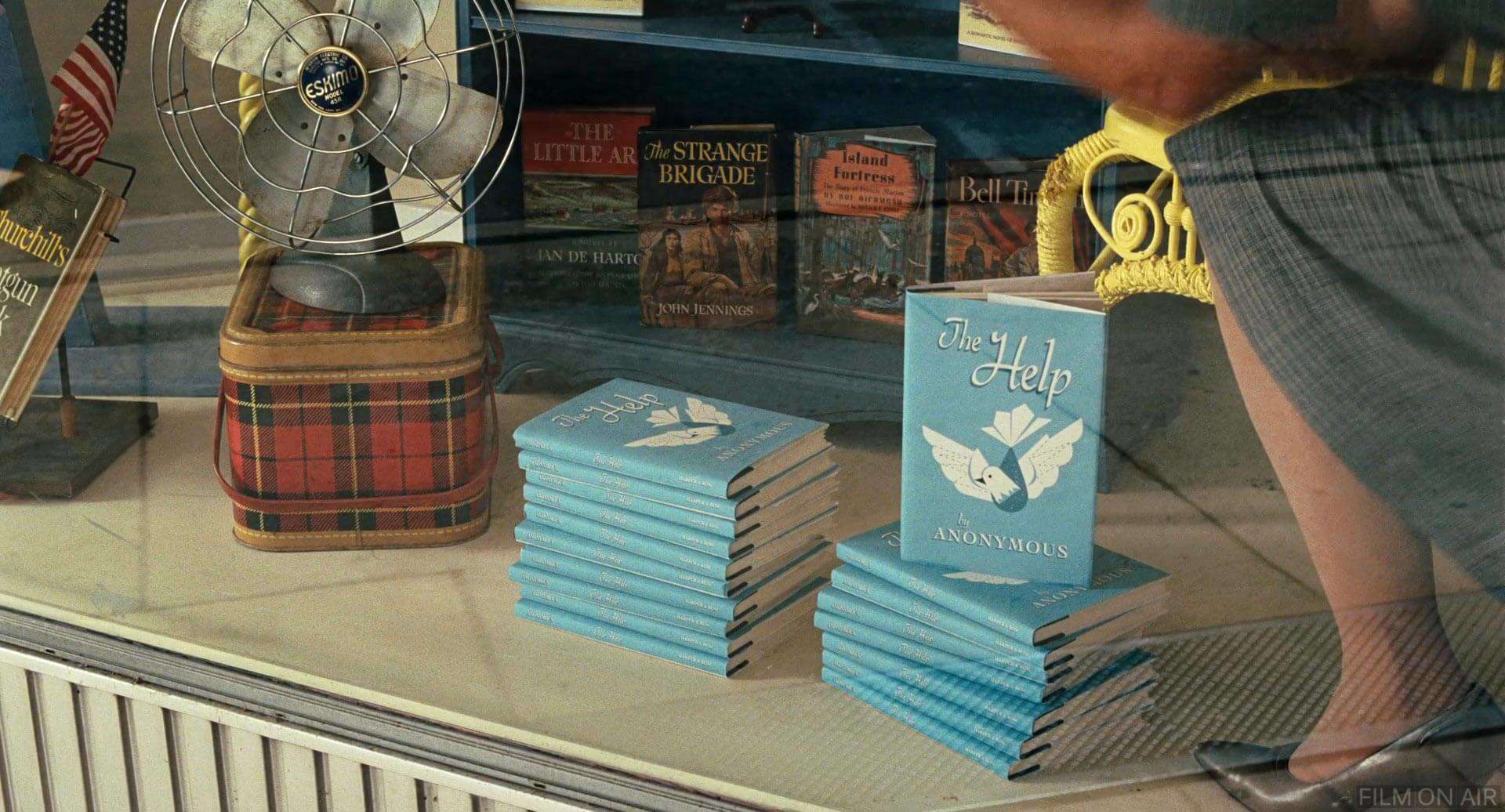
A Story of Courage and Equality, tells the story of a group of African-American women who work as maids for wealthy families in Jackson in the 1960s. In the film, the views of these women are published by Eugenia Phelan in an anonymous book entitled “The Help”, a tribute to the actual novel written by Stockett. A delicate story that makes us reflect and move in presenting the theme of equality. For everyone.
The Holy Bible – Fleabag (2019)
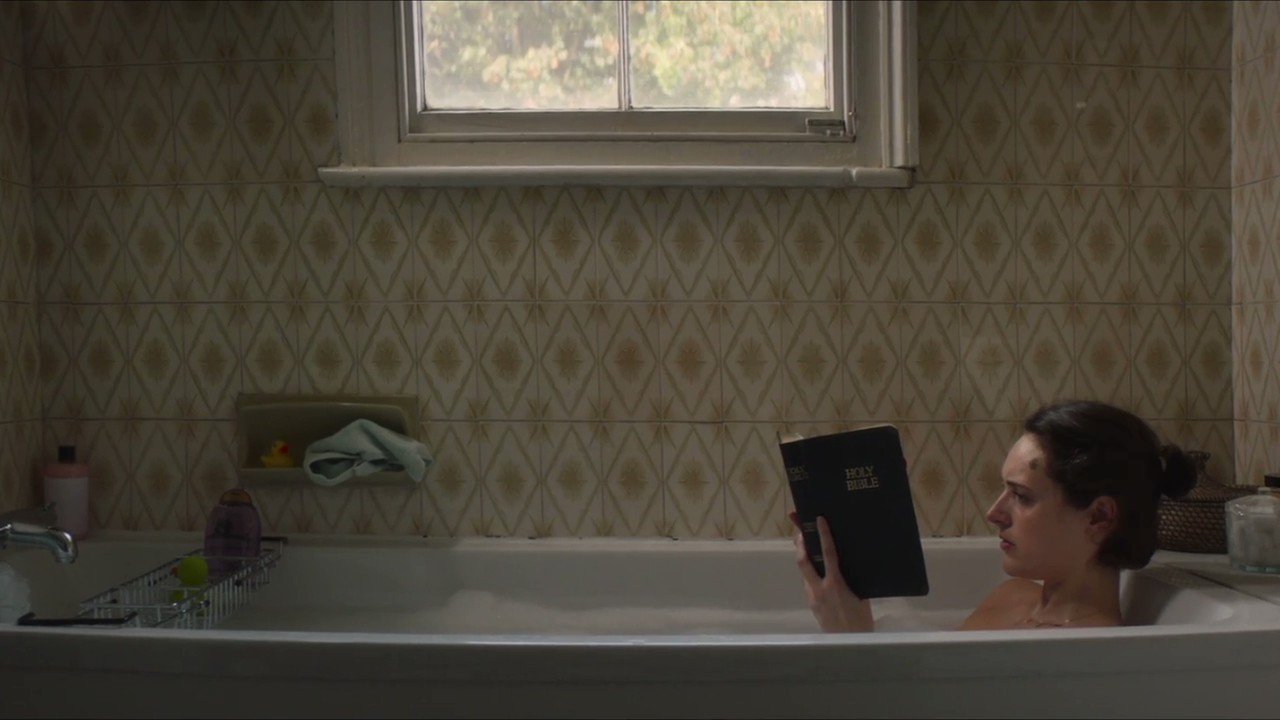
At the beginning of the third episode of the second season, Fleabag is reading the Bible in the bathtub when she casts a shocked look at the audience. Of course, considering it a relaxing read would be too much, but it is still a book that can provide a point of view on the world and the Christian religion, regardless of one’s faith. Even what leads us to delve into such a title is an intriguing and unpredictable priest like the one played by Andrew Scott in the series!
Moby Dick by Herman Melville – Derry Girls (2018)
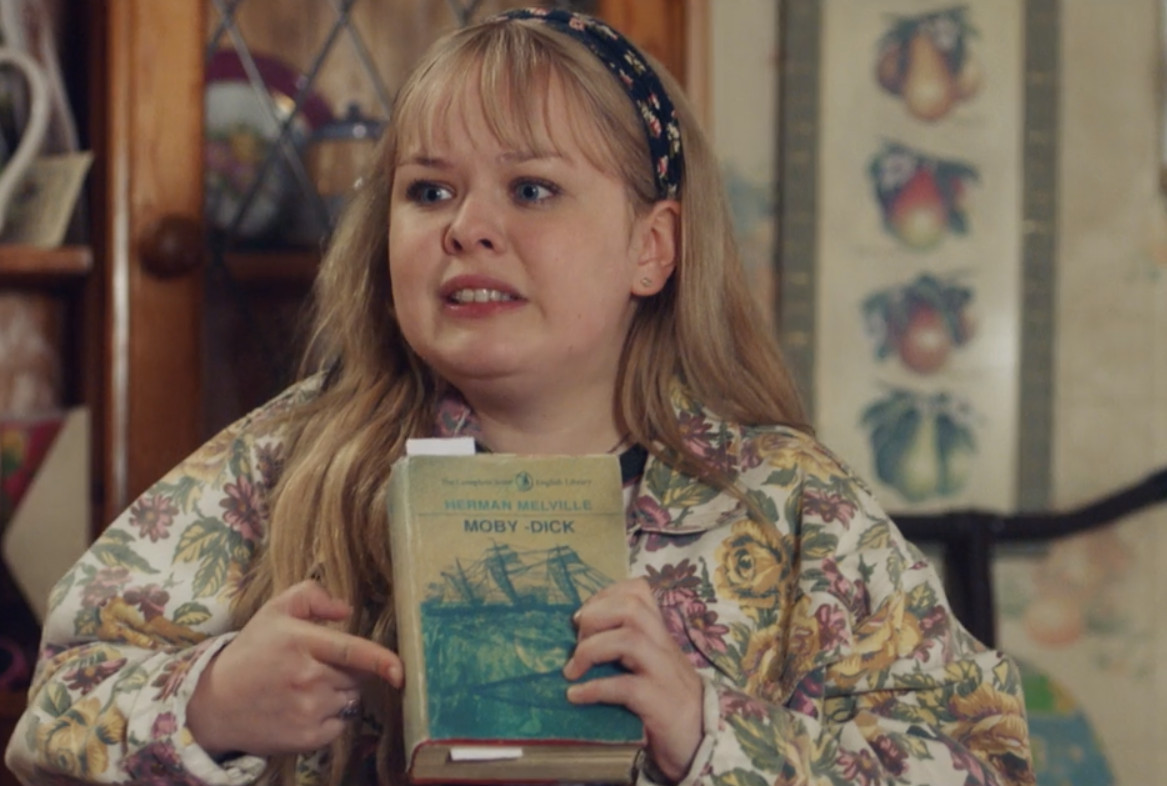
A character as iconic and intelligent as she is anxious about the series, Clare Devlin in the fifth episode of the first season would just like to read “Moby Dick” in peace. “Just” because the journey to get out of Derry with her friends will turn out to be full of daring surprises that will lead her to lose her bookmark and, consequently, to make her day from bad to bad! A moment of comedy that serves as an excuse to remind us of this classic of literature and how important it is to preserve one’s serenity when reading.
The Bell Jar by Sylvia Plath – The Simpsons (2009)
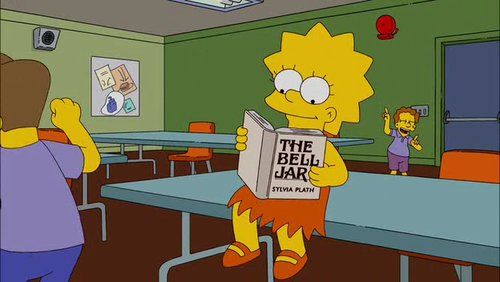
In the eleventh episode of the twentieth season, we see Lisa reading the author’s best-known classic, although, throughout the animated series, we find her also intent on reading other Sylvia Plath titles, such as a collection of poetry. A point of reference for all women who desire independence in life, she was a visionary, multifaceted, avant-garde, and deep woman. That’s exactly what Lisa tries to be throughout the episodes, thanks in large part to her closest “friends”: books.
James Joyce’s Ulysses by Stuart Gilbert (2001) – Gilmore Girls
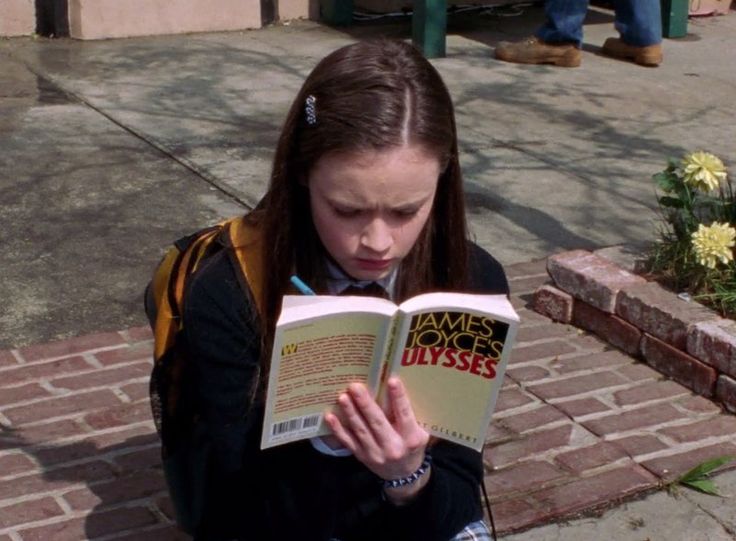
In the twentieth episode of the first season, Rory is reading this essay while waiting for Lane outside the grocery store. Published in 1930, it is a guide to James Joyce’s Ulysses written by the French translator of the work, as well as a friend of the author. A deep and complete analysis that Rory uses to better understand the actual Ulysses, tells the story of Mr. Bloom’s day in Dublin, a sort of modern Odyssey that the intelligent Rory cannot fail to include in his library!

